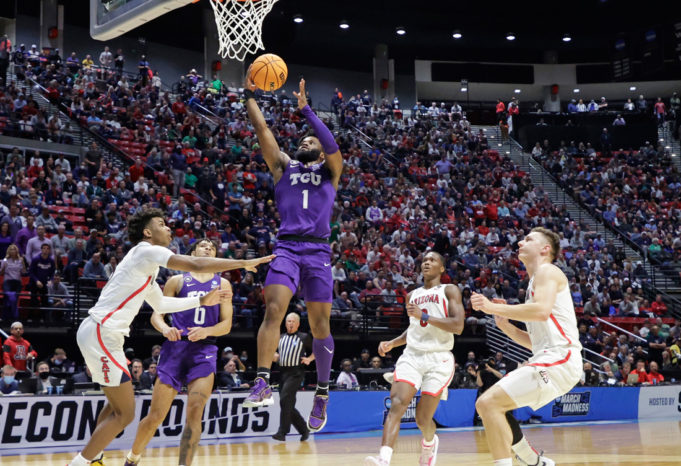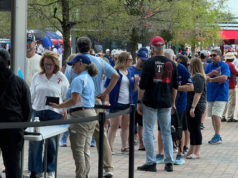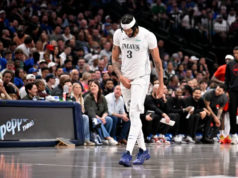Jamie Dixon and TCU basketball have accomplished a feat no other Frog hoopers have replicated in 60 years by qualifying for the NCAA tournament in consecutive years. In fact, this is only the 10th TCU men’s squad — and third under Dixon — to qualify for the Big Dance and the fifth in the modern era (the period since the tournament first awarded seeds in 1978). Much of this roster played in purple last season and likely still suffer deep stings to their hippocampus from their first-round stomping of Seton Hall before a second-round heartbreak at the paws of the first-seed Arizona Wildcats in overtime in the Midwest Region. That group was seeded ninth, but Dixon has experience with the sixth seed, which the Frogs are this season, and they aren’t sweet.
In 2018, fans and players alike were levitating with excitement after hearing their names called on Selection Sunday for the first time in 20 years. That sixth-seed squad was tasked with facing the winner of a play-in between Arizona State and Syracuse, which led to a five-point Orange W, thanks to the New Yorkers’ superior size and defense. The ’23 Frogs will need to shun a repeat as they face the winner of a Wednesday night tip between the Sun Devils — again — and the Nevada Wolfpack.
The past two weeks have been a whirlwind in Frog hoopland as the final week of regulation play featured the season’s first win over Texas as well as a loss to last-place Oklahoma. The Big 12 tournament proved a confidence builder, courtesy of a 13-point victory over Kansas State, before a six-point loss to Texas, who advanced to win the tournament title over the Jayhawks. During this process, center Eddie Lampkin never played but took to social media with allegations against Coach Dixon and his staff before announcing this week he would enter the transfer portal. The Frogs have proved they can beat high-caliber opponents without the big man’s presence, but his size, rebounding, and court energy will surely be missed from an X’s-and-O’s standpoint, even though his strain on team chemistry may not.
It’s a fool’s game to project future opponents through the tournament, as someone predicting a perfect bracket is about as likely as being struck by lightning while being drowned in lava from the eruption of the Tanaga volcano in Alaska, but I’m a fool, so here goes: The Frogs are most likely to meet Arizona State, who advance from a more competitive conference than the Wolfpack, compounded by Nevada’s three-game skid to conclude their season. The Devils and Frogs share three common opponents — SMU, Cal, and Utah — and swept all three but ASU by greater margins against all but the Utes. The Wolfpack share only one common opponent with TCU and don’t seem as dangerous, losing by nine in a high-scoring affair with Kansas State, whom the Frogs beat in two of their three matchups this season. The most concerning factor with the Horned Frogs’ placement is enduring a bench who squeaked into the tourney and has already settled in with an early game. That makes whoever comes out of the 11th-seed play-in game exponentially more dangerous than they might be otherwise. Better than in ’18, neither Nevada nor ASU are basketball blue bloods with consistent tournament pedigree like Syracuse.
An improvement over last year’s ninth-seeded Frogs is that their second-round opponent is not the favorite in the bracket. The West Regional (played in Denver, Sacramento, Albany, and Las Vegas) is anchored by Kansas (whom TCU beat on the road this year), who are playing on the Vegas side and are on a presumptive collision with fourth-seed UConn. The opposite side is anchored by two-seed UCLA, but the Frogs are hoping for a round-of-32 matchup with third-seed Gonzaga. Despite dissolving their football program around the time of Pearl Harbor, the Bulldogs are basketball powerhouses — when you don’t have football, what else is there, right? — but are a more beatable opponent than last year’s Wildcats. The Bulldogs fell during both their Big-12 matchups early in the season, throttled by nearly 20 points against Texas and losing a close one to Baylor.
The Big 12 is proving itself once more to be the deepest basketball conference in the country. Besides crowning consecutive champions in Baylor and Kansas, seven of the 10 squads were selected on Sunday. Defending-champion Kansas is a first-seed, Texas a second, and Baylor and Kansas State were both picked as third seeds. Iowa State — the only conference member to sweep the Frogs this season — are also a sixth seed, and West Virginia rounds out the group with a ninth-seed selection. Eight Big 10 and SEC schools, respectively, were selected for the tournament, but each of those conferences contains 14 teams. The greatest proportion of a conference selected belongs to the Big 12. And Texas, as a state, is leading the rest of the nation with seven selections: Houston (1), Texas (2), Baylor (3), TCU (6), Texas A&M (7), Texas A&M-Corpus Christi (16), and Texas Southern (16). Both of the 16-seeds have Tuesday- and Wednesday-night play-in games to advance to the round of 64.
Essential Frog viewing begins Wednesday night when both of TCU’s potential opponents tip at 8:10 p.m. on truTV. Whoever wins (probably ASU) will advance to Denver against Dixon and company for the late game on Friday night following Gonzaga v. Grand Canyon, where Coach Dixon will at least try to match his best tournament finish as the Frogs’ head coach.












